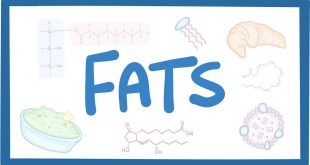In biology and biochemistry, a lipid is a macro-biomolecule that is soluble in nonpolar solvents. Non-polar solvents are typically hydrocarbons used to dissolve other naturally occurring hydrocarbon lipid molecules that do not (or do not easily) dissolve in water, including fatty acids, waxes, sterols, fat-soluble vitamins (such as vitamins A, D, E, and K), monoglycerides, diglycerides, triglycerides, and phospholipids. …
Read More »Introduction to Fatty acids
Fatty acid is an important constituent of fat and is the derivatives of hydrocarbon. It is a carboxylic acid (-COOH) with a long aliphatic chain, which is either saturated or unsaturated. Some fatty acids may have hydroxyl group in its chain (hydroxy fatty acids) and still others may possess ring …
Read More » Plantlet The Blogging Platform of Department of Botany, University of Dhaka
Plantlet The Blogging Platform of Department of Botany, University of Dhaka

